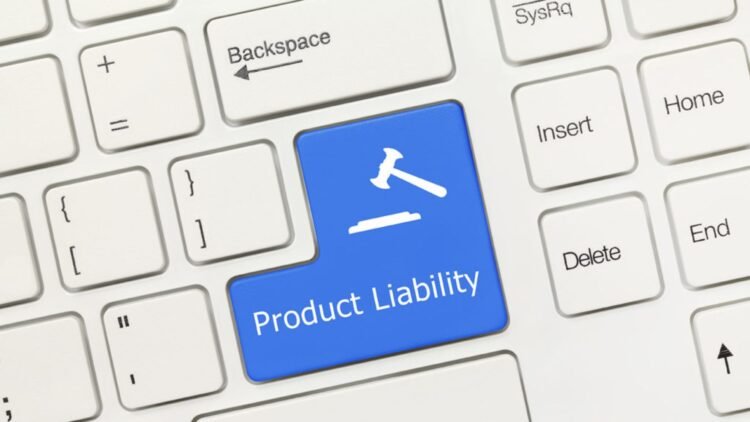Legal systems and ethical codes mirror the values that people within a society have and provide the guidelines for the development of appropriate behaviors. Ethics and law continually interact with each other and affect decision making in various spheres of life. Legal duties bind employers and employees and enforce them to behave according to major ethical principles. The doctrine of vicarious liability serves as the example of this type of interactions between the law and ethics. It is the liability of the employer for the negligent acts of the employee in the course of his or her employment. Overall, it means that an employer is accountable for the wrongful or negligent torts of his/her subordinates when they are fulfilling prescribed work responsibilities and roles. Researchers and legal practitioners distinguish many ethical-legal explanations for the given rule. Some of them are analyzed in the following paragraphs. Vicarious Liability and Corporate Social Continue reading
Legal Environment of Business
Ethical and Legal Justifications for The Doctrine of Vicarious Liability
Vicarious liability is a class of liabilities that deals with transfer of liability from one party to another. Vicarious liability operates under the doctrine of respondent superior, which puts legal responsibility to a superior for illegal behaviour or acts of the subordinates. Third parties are thus supposed to be ethical in their duties to avoid transfer of liability. In the same way, vicarious liability puts legal responsibilities on third parties with the duty, responsibility, or right to monitor and direct their juniors who act illegally or commit a crime. Vicarious liability can thus take the form of employers’ liability, parental liability, principals’ liability, corporations in tort liability, and continued liability, and indemnity of employees. All these liabilities have ethical issues to be considered during application. In various circumstances, it may be legal, but unethical to apply a particular vicarious liability. As aforementioned, vicarious liability operates under the doctrine of respondent superior and this doctrine Continue reading
What Is Product Liability? Meaning, Definition, and Laws
Product liability is a field of law that accounts for the responsibility of producers, manufacturers, suppliers, and other stakeholders who avail products to the general public for the injuries those products cause the public. Most of these claims are associated with negligence, breach of warranty, strict liability in addition to other forms of consumer protection claims. These laws are determined at the National level. A product liability and negligence claim justified by the product having either a manufacturer’s defect, a designing defect, or failure to warn the consumer. Generally, claims of product liability are not only based on negligence but also a strict liability. This theory of strict liability states that the manufacturer should be held liable even though the customer acted negligently. Failure to warn customers is viewed by some legal commentators as being negligent. The theory of strict liability focuses on the product of the manufacturer rather than Continue reading
Memorandum of Association of a Company
The Memorandum of Association is the charter of the company, and provides the foundation on which the structure of the company is built. It defines the scope of the company’s activities as well as its relation with the outside world. Section 2(28)of the Companies Act defines a Memorandum as “the memorandum of association of a company as originally framed or as altered from time to time in pursuance of any previous Company Laws or of this Act”. Section 13 of the Act specifies the contents of the memorandum. The importance of the Memorandum is that it lays down the ambit of the powers of the company, the area within which the company can operate and beyond which it cannot go. The purpose of the Memorandum is to enable the shareholders, creditors and those who deal with the company to know what is its permitted range of enterprise. The Memorandum of Continue reading
Doctrine of Ultra Vires
‘Ultra’ means beyond and ‘vires’ means powers. The term ultra vires a company means that the doing of the act is beyond the legal power and authority of the company. The doctrine of ultra vires is important in defining the limits of the powers conferred on the company by its Memorandum of Association. According to this doctrine, the vires (power) of a company to enter into a contract or transaction is limited by the ambit of the Objects Clause of the Memorandum and the provisions of the Companies Act. Whatever is not permitted by the Objects Clause and the Act, is prohibited by the doctrine of ultra vires. If a company engages in any activity or enters into any contract which is ultra vires (outside the power conferred by) the Memorandum or Act, it will be null and void so far as the company is concerned and it cannot be Continue reading
Directors of a Company
A company, though a legal entity in the eyes of the law, is an artificial person, existing only in contemplation of law. It has no physical existence. It has neither soul nor a body of its own. As such, it cannot act in its own person. It can do so only through some human agency. The persons who are in charge of the management of the affairs of a company are termed as directors. They are collectively known as Board of Directors. The Companies Act defines a ‘director’ as “any person occupying the position of a director by whatever name called” [Sec.2(13)]. This is however, an inadequate definition. In the absence of a precise definition, we can only determine whether a person is a director or not a director by referring to the nature of his office and functions. According to the functions performed by him, a director may be Continue reading
